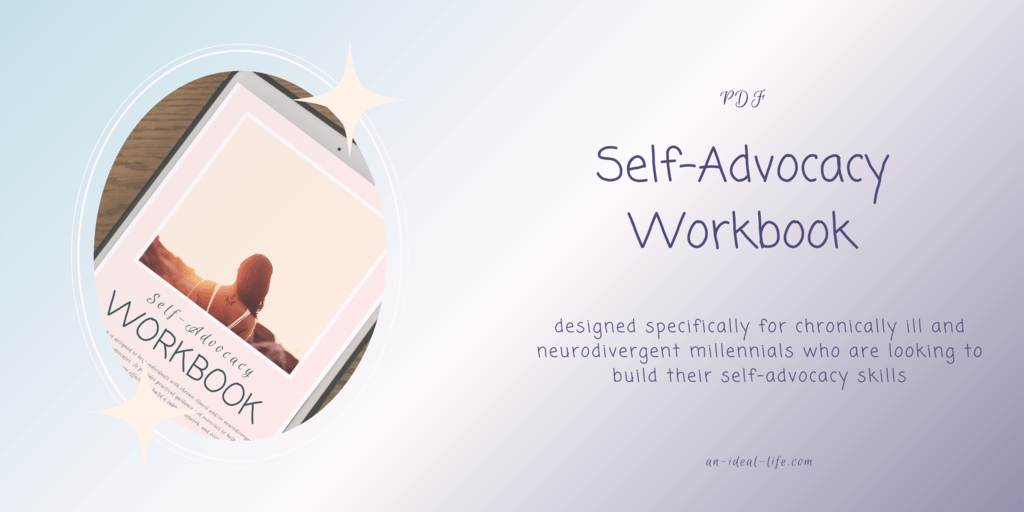How Do You Live a Full Life With Chronic Illness?

Living with chronic illness can often feel like an insurmountable challenge, a never-ending cycle of doctor’s appointments, medication adjustments, and physical limitations. However, it is entirely possible to lead a meaningful, full life with chronic illness and all its obstacles.
Embrace Your Reality
The first step towards living a ful life with chronic illness is acceptance. This doesn’t mean giving up hope for improvement but rather acknowledging your current circumstances. This sense of acceptance can be liberating, allowing you to shift focus from what you cannot do to what you can achieve. It’s about making peace with your body and working with it, not against it.
Prioritize Self-Care
Self-care is not just a buzzword; it’s a vital component of managing chronic illness. Prioritizing self-care means listening to your body and giving it what it needs to function at its best. This can include maintaining a balanced diet, getting regular, gentle exercise, ensuring adequate rest, and engaging in activities that promote mental well-being, such as meditation or hobbies you enjoy.
Build a Support Network
Isolation can exacerbate the difficulties of living with a chronic illness. As Kent State’s Courtney McLeod writes,”Something no one tells you when you’re diagnosed with a chronic illness is that you will be lonely. Lonely in your pain, in your thoughts, in your emotions; everything.” Building a robust support network of family, friends, healthcare providers, and support groups can provide emotional support and practical help. Sharing your experiences with others who understand can be incredibly validating and uplifting.

Manage Stress Effectively
Chronic illness often brings a lot of stress, which can worsen symptoms. We not only have the normal stress of everyday life, but exacerbate it with the added chaos of frequent appointments, symptom management, and even darker facets of spoonie life, such as medical gaslighting. Developing effective stress management techniques is crucial. Practices like mindfulness (such as with our Breathe and Be audio meditation!), yoga, and deep-breathing exercises can help keep stress at bay. Finding what works for you is key, whether it’s through creative outlets, physical activity, or relaxation techniques.
Advocate for Yourself
Becoming your own advocate is essential. This means educating yourself about your condition, communicating clearly with your healthcare providers, and making informed decisions about your treatment options. Don’t be afraid to ask questions or seek second opinions. Your health is your priority, and you have a right to be an active participant in your care.

Set Realistic Goals
Living a full life with chronic illness doesn’t mean pushing yourself beyond your limits. Instead, it’s about setting realistic, achievable goals that honor your body’s capabilities. Celebrate small victories and understand that progress may be slow but it’s still progress! Adapt your goals as needed and remain flexible in your approach to creating your ideal life
Focus on Quality of Life
A full life with chronic illness or otherwise is not solely defined by what you do, but by the quality of your experiences. Focus on activities that bring you joy and fulfillment. This could be anything from spending time with loved ones, engaging in creative pursuits, volunteering, or simply enjoying nature. Finding moments of joy in your daily life can make a significant difference in your overall well-being.
Stay Positive and Grateful
Maintaining a positive outlook and practicing gratitude can have a profound impact on your mental and emotional health. It’s natural to have tough days, but cultivating a habit of focusing on the positives and expressing gratitude for the small things can help shift your perspective and improve your resilience.

Practical Tips for a Full Life with Chronic Illness
Cultivating a full life with a chronic illness can be daunting, but with the right strategies, it’s possible to make it more manageable. Here are some practical tips to help you live your ideal life despite the challenges:
Energy Management
Use the spoon theory to plan your day. Prioritize tasks and spread out activities to avoid burnout. Consider using tools like planners or apps to schedule rest periods and monitor your energy levels.
Pain Management
Experiment with different pain relief methods such as heat therapy, cold packs, acupuncture, or massage. Always consult with a healthcare provider before trying new treatments.
Diet and Nutrition
Focus on anti-inflammatory foods and maintain a balanced diet to support your body’s needs. Consulting a nutritionist can help tailor a diet plan that works best for you!
Exercise and Movement
Incorporate gentle exercises like yoga, stretching, or swimming. Physical activity can improve mood and energy levels but always adapt to your body’s limits.
Mindfulness and Relaxation
Practice mindfulness techniques such as meditation, deep breathing, or progressive muscle relaxation. These can help manage stress and improve overall well-being.

Sleep Hygiene
Establish a regular sleep routine by going to bed and waking up at the same time every day. Create a restful environment and avoid screens before bedtime to improve sleep quality.
Organization and Planning
Keep a daily journal to track symptoms, medications, and activities. This can help you identify patterns and manage your condition more effectively.

Support Systems
Engage with support groups, either in person or online. Connecting with others who understand your experience can provide emotional support and practical advice.
Adaptive Tools
Use adaptive tools and technologies to make daily tasks easier. This could include ergonomic furniture, kitchen gadgets, or voice-activated assistants.
Regular Check-ups
Stay on top of your health by keeping regular appointments with your healthcare team. Preventative care and early intervention can make a big difference in managing your condition.
Living a full life with chronic illness is undeniably challenging, but it’s far from impossible. By embracing your reality, prioritizing self-care, building a support network, managing stress, advocating for yourself, setting realistic goals, focusing on quality of life, and maintaining a positive outlook, you can navigate your journey with grace and find fulfillment. Remember, your illness is just one part of your life, not its entirety. You have the power to live fully and meaningfully, despite the challenges you face.
Source link



